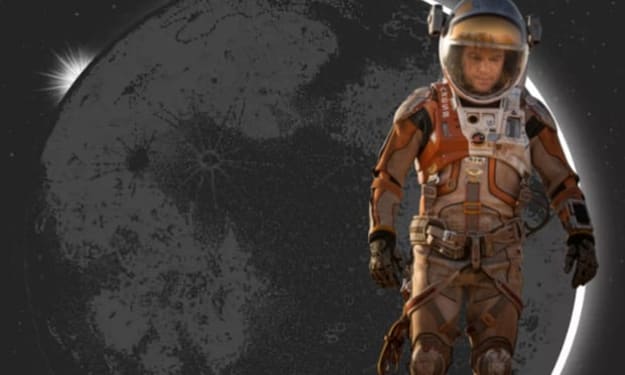
Over on The Washington Post, TV critic Hank Stuever has just launched an excoriating attack on Netflix. His argument is that, as powerful as the streaming giant may be, the company has one major flaw: it lacks an identity. It doesn't have a unifying sense of brand, and as a result — with only a handful of exceptions — Netflix isn't really shaping the cultural conversation.
It's hard to argue that Stuever doesn't have a point. And yet, at the same time, I can't help feeling he's missed what #Netflix is actually trying to achieve.
Netflix Doesn't Want An Identity In The First Place
Fundamentally, Netflix is not an identity-driven company; it's a data-driven one. The secret to Netflix's success is in its algorithms, and the streaming giant's goal is to ensure that every user has a unique, personalized experience. Researchers at Netflix have found that if a user doesn't find something to watch in between 60 and 90 seconds, they'll move on to something else. We don't know the exact size of Netflix's content library — and it varies radically from country to country — but there's no way any viewer will be able to navigate it in such a short window of time. Instead, Netflix has developed sophisticated algorithms that analyze every subscriber's viewing habits and make unique, individual recommendations based upon that. Every time you actually select one of their recommendations, the algorithm has worked.
Every new show is a data point for Netflix, who divide viewers into what they call "taste communities." To give a sense of the range here, Netflix divide viewers into roughly 2,000 taste communities — and every person is part of three or four of these. The more shows you watch on Netflix, the more the algorithm understands which taste communities you're a part of, and the more it can tailor Netflix's recommendations to your individual taste. Even search is personalized, with the results influenced by your taste communities and the popularity of specific titles.
Take the hugely popular #Marvel Netflix shows; only a core group of fans watch all of the Marvel series. Instead, Netflix has noted that Daredevil viewers tend to like House of Cards, Bloodline, and Breaking Bad; fans of Jessica Jones are interested in the sharp humor of Master of None and Friends; the top lead-in for Luke Cage is Narcos; and edgy coming-of-age shows like 13 Reasons Why and Shameless are the path to Iron Fist. #TheDefenders, a unique series that blends the four previous Marvel Netflix shows, promises to be one of the most useful data points of all. The streaming giant seems truly excited about seeing what insights they can gather from this show.
It gets even more complicated than that, because the algorithm takes other factors into account too — ranging from the time of day you log in, to the device you use, to the scenes you're willing to pause for a toilet break. Meanwhile, Netflix is wary of over-personalizing, and the algorithm is deliberately set to occasionally suggest content that's outside your normal viewing habits. That ensures Netflix doesn't accidentally omit shows you may be interested in, and your interaction with these occasional "outlier" recommendations is a tremendously valuable data point in itself.
All this means that every user will get a unique experience of Netflix. Netflix doesn't have a central identity — because it doesn't want one. Each user should experience Netflix in a different way. Logically, this is also having an impact on the kind of shows Netflix orders and renews.
How Netflix Originals Figure Into This
The last few years have seen Netflix reduce its catalog, instead focusing on increasing the number of Netflix Originals. Last year, Chief Finance Officer David Wells announced that the target was for 50% of Netflix content to be original programming.
Although this is an expensive objective in terms of production and development costs, it's easy to see the benefits. Distribution rights for shows are often geographically restricted; the Netflix library in the U.S. is radically different to the one in the UK. What's more, the streaming giant will always be renegotiating rights for these shows, meaning fans may get frustrated if their favorite series gets dropped from their region. In the worst case, competitors may decide to pull their content from Netflix altogether, with the aim of setting up a streaming rival. Disney recently announced that it intends to do just that in 2019.
Netflix Originals, however, are permanent content. They'll always be there, a part of the Netflix catalog, and Netflix will always own the global distribution rights — meaning they'll never disappear. They're a reliable part of Netflix's personalized identity. As a result, while Netflix is reducing its catalog of licensed shows, it's continuing to push a focus on original content.
Tying this in with the concept of taste communities, Netflix has to make sure there's something for every single taste community that could be affected. When Netflix lose the distribution rights to a series, or choose not to compete for them again, they need to ensure there's something else to interest viewers who watched that series. As a result, the streaming giant commissions a dizzying range of original shows — from Daredevil to Ozark, from 13 Reasons Why to House of Cards.
The good news for Netflix is, the more data they have, the more accurately they can predict the next hit. Netflix execs knew #HouseOfCards would be a success before the show was even released. They knew how many people had streamed the work of David Fincher from beginning to end; they knew how the British series had performed; and they knew exactly which viewers tended to watch shows with Kevin Spacey. They plotted these variables out on a Venn diagram, and were able to accurately predict the show's performance. We can assume that, however wonderfully creative more recent series like #StrangerThings may be, they were similarly low-risk due to the abundance of data the streaming giant has collected.
Comparing Netflix to traditional networks, Stuever complains:
"It sometimes take decades for viewers to know a network as well as it knows itself. To know what HBO feels like. To know what CBS, ABC and NBC feel like. While Netflix churns at full steam, will it ever be possible for us to sense that a show is — at its core — one that only Netflix could make?"
He's right; but at the same time, he's misunderstanding Netflix's goal. Netflix don't expect a viewer to have that kind of relationship with them; instead, their goal is to know the viewer as well as (and probably better than) they know themselves. They don't necessarily want to be producing content that only Netflix could make; rather, they want to be producing content that you want to watch. Just as Netflix is data-driven in its recommendations, the company's understanding of its viewers — married to its need to transition from content distributor to content creator — means it is data-driven in its shows.
Now, let's be fair; Hank Stuever has a point. He's right when he says that Netflix doesn't have a sense of identity, but he's wrong in believing that's a problem. Rather, that's the key to the streaming giant's success. Netflix isn't an identity-driven company; it's a data-driven one. The goal is for every viewer to have a different, unique experience when they log in — one tailored to their individual tastes, presenting just what they're interested in and most likely to watch. A centralized identity would actually be a barrier to Netflix's fulfilling that goal.
[Sources: Business Insider, New York Times, Washington Post, Wired]
About the Creator
Tom Bacon
A prolific writer and film fan, Tom has a deep love of the superhero genre.






Comments
There are no comments for this story
Be the first to respond and start the conversation.